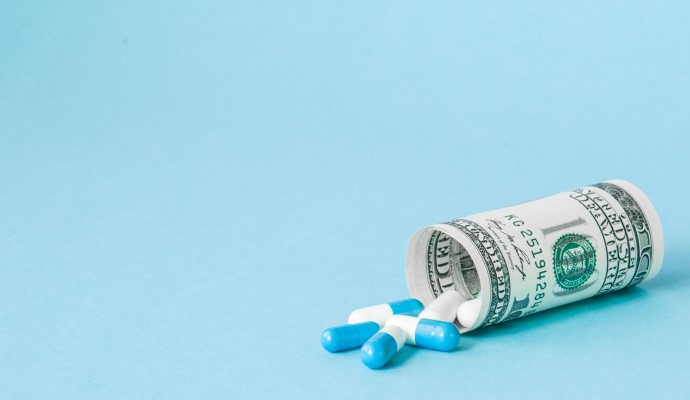Safety-Net Hospitals See Losses from 340B Drug Discount Limits
Twelve drug companies have imposed 340B drug discount restrictions, leading safety-net hospitals to experience significant financial losses.

Source: Getty Images
- Safety-net hospitals have faced losses of up to $9 million due to a handful of drug companies limiting 340B discounts on prescription drugs dispensed through community pharmacies, according to a report from 340B Health.
Under the 340B Drug Pricing Program, eligible healthcare organizations receive outpatient prescription drugs from participating drug manufacturers at reduced prices. In turn, the drug companies gain access to Medicaid and Medicare Part B prescription drugs.
Providers direct the savings gained through the program toward services, resources, and care for low-income and rural patients. This allows providers to prioritize patient health without using additional taxpayer dollars.
Starting in July 2020, a number of drug companies imposed restrictions on 340B discounts, such as refusing to provide drugs to contract pharmacies if hospitals had their own in-house pharmacy or requiring more detailed reporting from hospitals to ensure the companies are not paying duplicate discounts on 340B drugs.
Since then, 12 pharmaceutical companies have announced policies that limit the availability of 340B drug discounts, leading to significant financial losses for safety-net hospitals.
In November and December 2021, 340B Health surveyed 510 hospitals. During the survey period, only eight drug companies had implemented restrictions: Eli Lilly, AstraZeneca, Sanofi, Merck, Novo Nordisk, Novartis, United Therapeutics, and Boehringer Ingelheim.
Critical access hospitals—rural hospitals with 25 beds or fewer and the only hospitals within 35 miles of another provider—receive 52 percent of their 340B savings through the drug program. According to 340B Health, these hospitals have consistently reported that 340B savings are crucial to their ability to stay open. The loss of these savings could lead to closures.
Critical access hospitals have lost 39 percent of their community pharmacy savings because of 340B restrictions from the drug companies. The facilities reported a median annualized loss of $222,000, with 10 percent of hospitals seeing losses of $700,000 or more, the survey found.
Larger, urban safety-net hospitals, including disproportionate share hospitals, rural referral centers, and sole community hospitals, have lost 23 percent of their community pharmacy savings due to the discount limitations.
The annualized median reported loss for these hospitals was $1 million, and 10 percent of the hospitals experienced losses of $9 million or more.
“These figures are only the tip of a very dangerous iceberg,” Maureen Testoni, president and chief executive officer of 340B Health, stated in a press release. “Our greatest concern is the impact on patients. With losses such as these, hospital administrators could be forced to reduce or eliminate health care programs, services, and support that are vital to the health of patients and communities.”
“For rural hospitals, a loss of 340B savings can lead to the closure of facilities that are often the only source of care for broad areas of our country. These unlawful actions are weakening the health care safety net and pose a threat to patients.”
Hospitals have reported that the financial losses negatively impact patients and have forced some to change medications to continue to afford their treatments.
Since the survey period, four more drug companies have imposed restrictions, including Amgen, UCB, AbbVie, and Bristol Myers Squibb, indicating that safety-net hospital financial losses are expected to grow.
Bristol Myers Squibb announced in January 2022 that it would only recognize two designated contract pharmacy locations per hospital for 340B discounts. One pharmacy location will be for immunomodulatory imide drugs (IMiD), while the other will be for non-IMiD products. This restriction applies only to hospitals that do not have an entity-owned pharmacy. The policy will take effect on March 1, 2022.
The Health Resources and Services Administration (HRSA) has determined that the drug companies’ restrictions are unlawful and has notified the companies to restore 340B pricing, according to 340B Health. In addition, HRSA has referred six cases to the HHS Office of Inspector General (OIG) for potential civil monetary penalties.
Meanwhile, eight pharmaceutical companies have filed federal lawsuits to prevent HRSA from enforcing its orders.
Courts are divided on the matter, with two district courts supporting HRSA’s position and one court stating that HRSA’s reading of the law is not the only interpretation, 340B Health’s report said.
